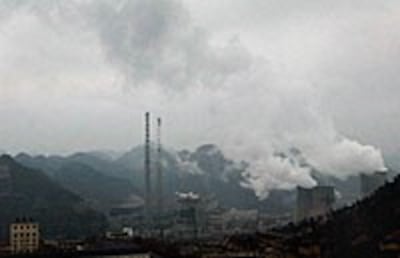
WASHINGTON—Chinese authorities are racing to solve the country's chronic power shortages ahead of the summer heat with a new set of regulations aimed at giving teeth to the country's fledgling electricity watchdog.
But the measures are unlikely to tackle the problem where it really matters, in the area of pricing, analysts told RFA in a series of recent interviews.
"I think they're really worried, seriously worried, about this year," Robert Ebel, director of the energy and national security program at the Center for Strategic and International Studies in Washington, told RFA's Wu dialect service.
Summer heat approaches
"They went through last year with electric power shortages pretty much nationwide and now it looks like it's going to happen again. So, how do you solve it? That's what they're trying to figure out," Ebel told reporter Michael Lelyveld.
"Price incentive is the best incentive that you can have for both producer and consumer," he said.
New power sector regulations effective May 1 were supposed to strengthen the powers of the State Electricity Regulatory Commission (SERC) but fell way short of expectations, according to local media reports.
The SERC has been unable to improve the situation in the power sector because it lacks authority to set rates or approve construction of new power plants.
Those authorities rest with the far more powerful State Development and Reform Commission of China's cabinet, the State Council.
Price increases politically sensitive
Government officials blame the annual enforced power cuts during peak summer months when air-conditioning is at its height on shortages of coal and rail capacity to get supplies to power plants.
The government has been working to speed up construction of power plants, but it has also slammed the brakes on some 30 power projects that it considers unauthorized.
But experts say the sensitive issue of price increases for power has not been addressed in any meaningful way. Rate increases in the last year have been too small to dampen consumption growth.
Officials have also talked about energy conservation, but the government has taken few effective steps, according to Philip Andrews-Speed, China energy expert at Dundee University.
"There was a lot of talk last year about energy conservation. But the only real conservation measure I could see was literally the turning off of electricity to factories and other institutions when there wasn't enough power," Andrews-Speed told RFA.
"There's no real indication of a new and more coherent approach," he added.
Fear of social unrest
Jason Feer, Singapore bureau chief for Petroleum Argus, said the government's worry about major price increases stems mostly from social concerns.
"There's always a concern that if the government introduces some sort of dramatic economic change, such as raising power prices across the board, that that will raise questions about the stability of the government," Feer said.
"How much will people accept and how much can people afford to pay before they will have been pushed too far?"
He said the fears of instability lurked behind the government's procrastination over setting up a credible regulatory body and allowing prices to rise.
Feer said that full deregulation of power prices would work in theory to balance supply and demand. But the government is unlikely to risk a move toward free-market pricing because it could not predict how high prices would go. It would also have to make a host of other economic adjustments.
Original reporting by Michael Lelyveld for the Wu (Shanghai) dialect service. RFA Mandarin service director: Jennifer Chou. Produced for the Web in English by Luisetta Mudie.
